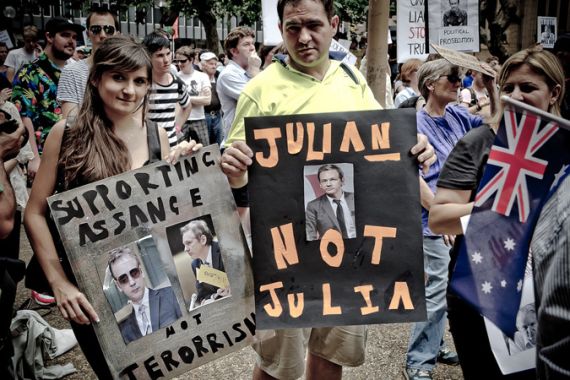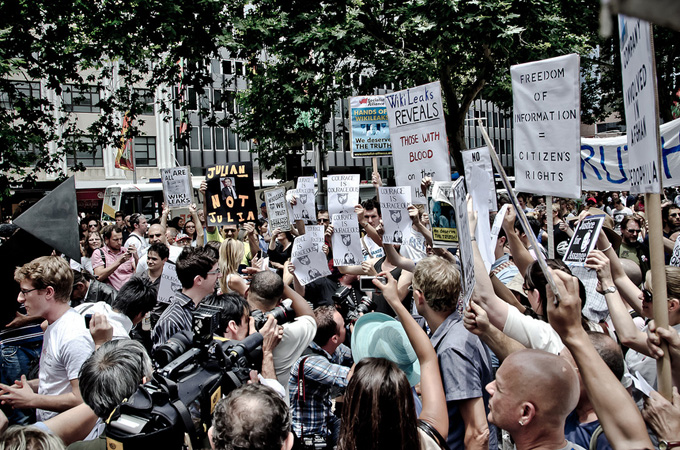Pro-WikiLeaks protests in Australia
Hundreds protest against the arrest of Julian Assange and accuse the Australian government of opposing free speech.

 |
| Protesters condemned the Australian government’s stand on Assange’s arrest as “outrageous’ [via Flickr user: mrreebdoog] |
Pro-WikiLeaks demonstrations have been held across Australia against the arrest of Julian Assange, the whistleblowing website’s founder.
In Sydney, around 500 demonstrators gathered on Friday, to push for the release of Assange, who is in a British jail fighting extradition to Sweden on sex crime allegations.
A group of WikiLeaks supporters also staged a rally in Brisbane, calling on the Australian government to respect freedom of expression.
WikiLeaks, which has provoked fury in Washington with its publications, vowed it would continue making public details of the 250,000 secret diplomatic US cables it had obtained.
Assange, an Australian citizen, has been in a UK jail waiting for news on whether or not he will be extradited to Sweden in relation to a number of allegations of sexual crimes made against him in that country.
Those who attended the rally in Sydney also condemned the Australian government for its stand on the issue.
“To say to the Australian government, the [Julia] Gillard Government … behaviour in the last two weeks has been utterly outrageous, outrageous,” Antony Lowenstein, one of the organisers said while addressing the crowd.
The US government and others across the world have argued the publication of cables is irresponsible and could put their national security at risk.
The WikiLeaks website was shut down after apparent political pressure on service providers, but WikiLeaks said there were now 750 global mirror sites meaning the data so far released remained publicly available.
Embarrassment
WikiLeaks has continued to embarrass the Australian government, with the latest batch of leaked cables revealing that Kevin Rudd, the foreign minister. derided the contributions of France and Germany in Afghanistan.
The cables, published in the Australian newspaper Fairfax, reported how Rudd likened the European fight against the Taliban to “organising folk-dancing festivals”.
In another of the cables sent to Washington in November 2009 Rudd, as prime minister, confided that the outlook in Afghanistan “scares the hell out of me”.
Protesters in Sydney said they were angry that Assange was arrested after voicing the truth.
Australia has previously faced some criticism in the media for not standing by Assange.
Robert McClelland, the attorney-general, and Gillard, the prime minister, have voiced strong criticism of Assange and WikiLeaks.